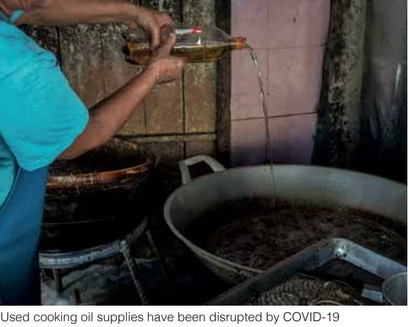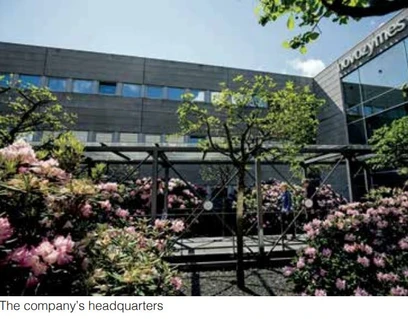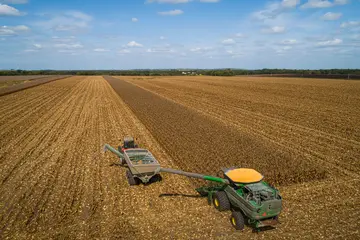Flexible feedstock future for biodiesel
Never before has it been clear the biodiesel industry needs to adopt technologies that can provide much-needed flexibility to switch to the lowest cost feedstock. Bio-based solutions are a proven technology that can make a difference
Like every other industry, biodiesel has been reeling since COVID-19 started engulfing the world. From a biodiesel producer’s perspective, the situation is troubling because fuel demand has been low.
The pandemic has also caused supply chain disruptions affecting some feedstocks putting even more pressure on the biodiesel margins. At the same time, a substantial drop in eating out has hit used cooking oil supplies while disruption in meat supply has reduced animal fat supplies.
To make matters more difficult, a sharp drop in corn ethanol demand has affected the output of the by-product corn oil for biodiesel. In Europe, margins for biodiesel from rapeseed were negative in April and May when feedstock prices rose, and biodiesel prices remained flat.
The message is clear - biodiesel producers have to find ways to be more flexible so they can achieve their goals – even in uncertain times.
Leveraging technology to overcome challenges
The situation is indeed serious but despite the growing pains, a number of biodiesel producers have thrived even in the COVID era.
What have they done differently? For one, they have been swift in adapting to new market realities with production technologies that enable flexibility to always work with the lowest cost feedstocks. The total waste oil supply is estimated to be around 29.5 million tonnes and there is greater potential waiting to be unlocked as this figure does not include waste oils that are currently not collected.
Low cost feedstocks is one area where biological solutions are making a major difference to help biodiesel producers manage volatile feedstock markets.
Greener and cleaner

Cheap, low quality and nonfood oils have long been considered for biodiesel feedstock. However in chemical processing, these feed materials often require difficult and costly refining in order to not harm the chemical catalyst.
In addition, chemical processes often require harsh chemicals, high energy input and high stoichiometric excess, all adding to the capital and operational expenses.
“Chemical catalyst processes that have traditionally been used will eventually become outdated because of their inability to switch to different feedstocks when net margins go negative or trading paradigms change,” said Daniel Cardinali, global head of vegetable oil processing at Novozymes. “Using sodium methoxide for transesterification of soybean oil works great, but the process becomes complicated and less economic when processing high acidity oils like DGS corn oil or fatty acid distillates.”
Enzymatic biodiesel has been considered a promising alternative since the early 1990s in the scientific community.
Only recently, however, this potential has been realised with the official launches of innovative solutions. As far as benefits go, biotechnology provides biodiesel producers with flexibility to process feedstocks with high levels of free fatty acid (FFA) with less need for expensive pretreatment or glycerolysis.
The enzymatic catalyst functions independently of feed oil free fatty acids (FFA) concentration, and can tolerate high levels of water, which conventional catalysts cannot.
Managing FFA with biotechnology
In contrast to most conventional chemical catalystbased technologies that require a low FFA feed oil such as refined soy bean oil, enzymatic biodiesel can be made from basically any type content of FFA. This feature circumvents the costly and messy sulfuric acid esterification and/or thermal glycerolysis commonly used in conventional biodiesel pre-treatment of high FFA oils.
Novozymes launched its first product Eversa® Transform in 2014 and more than 20 customers use the technology either as an add-on process for high FFA side streams or as a standalone plant for waste oils.
One such customer is Oleofat, a company based in the city of Tudela in Navarra, Spain. Oleofat specialises in the production of sustainable biofuels from by-products and waste oils.
“Our biggest challenge was to handle the high FFA of our feedstocks and the wastewater associated with traditional technologies,” said Rafael Lavin, CEO, Oleofat. “Working with Novozymes we are now able to provide our customers with high-quality and sustainable raw materials for production our biofuels without having an environmental impact on the local community.”
The future is flexible
The feedstock flexibility, regarding FFA content, provides biodiesel producers with the option of utilizing a broad and versatile range of high FFA feed oils.
This allows them to browse the market for the currently most profitable feed material and take advantage of fluctuations in the feed oil prices.
Global biodiesel plant builder Desmet Ballestra has been working with Novozymes technology since 2014.

“Novozymes’ enzyme-based transesterification process is cost-efficient and a proven alternative for modifying existing plants to enable biodiesel producers incorporate other feedstocks than the conventional oils like soybean, rapeseed and palm oil currently dominating the biodiesel market,” added Marc Kellens, group director of technology at Desmet Ballestra. “The enzymatic process makes it possible to convert secondary oils like fatty acid distillates, DGS corn oil, UCO and animal fats into biodiesel with relatively low capital expenditure by retrofitting a plant.”
Benign processing conditions also eliminate the need for expensive metal reactors for acid catalysts, saving producers times and money.
As the world moves toward a greener future with lesser carbon emissions, governments around the world are mulling new and higher biodiesel blend mandates. The B30 mandate in Indonesia, the B10 mandate in Brazil, Red II directive in Europe and LCSF in California are some examples of policies that will create more demand for biodiesel.
Global policies will continue to incentivise low carbon biofuels and raise demand for waste-based biodiesel. With multiple feedstock options to choose from, biodiesel producers can stay one step ahead of changing markets – today and tomorrow.


